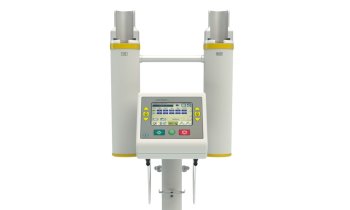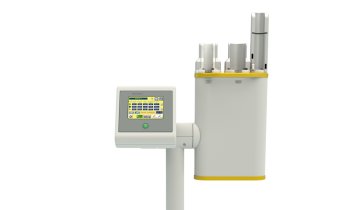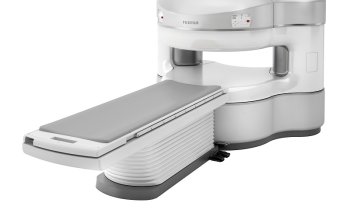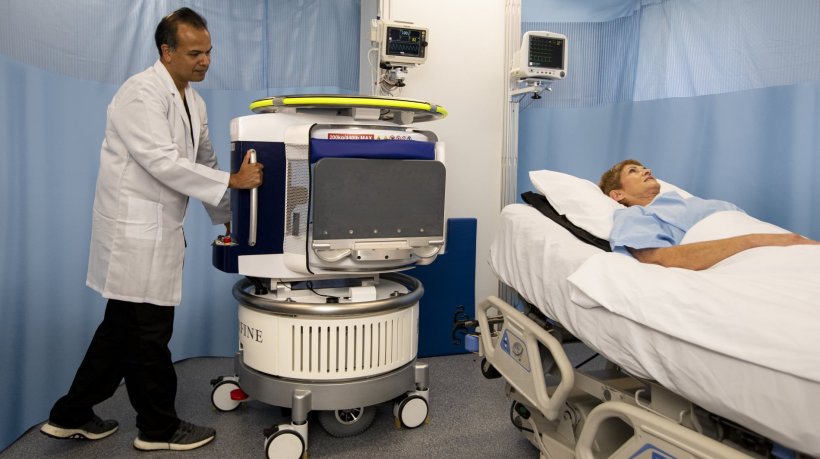
Photo: Business Wire
News • POC imaging
Introducing a point-of-care MRI system
The world’s first low-cost, point-of-care (POC) magnetic resonance imaging (MRI) system was presented by Hyperfine Research Inc. at the American College of Emergency Physicians (ACEP) Scientific Assembly 2019.
The system aims to make MRI available anytime, anywhere, to any patient who needs it. Hyperfine makes MRI inexpensive, accessible, and easy to use by leveraging the ten million-fold improvement in computing power since the first MRI systems were designed, the revolution in green electronics, and advances in large-scale integration. Hyperfine’s portable MRI is 20 times less costly, 35 times lower power, and 10 times lighter than the most popular current MRI machines.
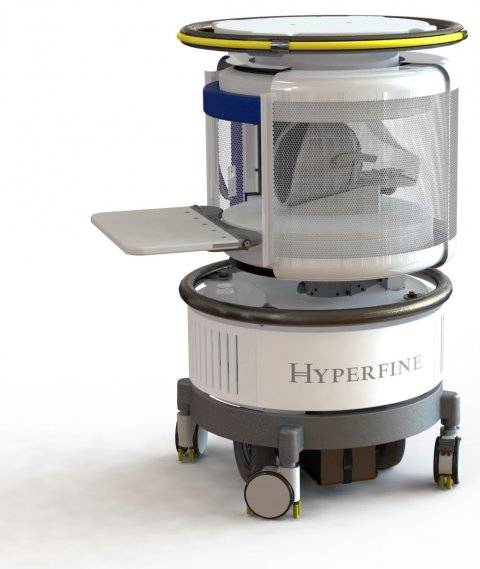
The compact, open-design scanner wheels directly to the bedside, plugs into a wall outlet, and allows for direct contact with the patient. It operates via a simple user interface on a tablet and does not require trained technicians, shielded electronics, or separate hospital facilities. Hyperfine potentially makes MRI available to patients who cannot safely be transported through a hospital, as well as the 4.7 billion people in rural and low-resource communities who have limited or no access to medical imaging. “We completely reexamined MRI from the ground up,” said John Martin, MD, Hyperfine’s Chief Medical Officer. “Hyperfine’s system will open avenues to reach patients in clinical settings never before imagined for MRI.”
Hyperfine’s POC MRI creates standard clinical contrast images as well as informative 3D renders. Hyperfine is developing software that improves with each use via deep learning algorithms to reconstruct images and aid in the diagnosis of pathologies. “Hyperfine is changing how medicine is practiced with point-of-care MRI,” said Jonathan M. Rothberg, PhD, Founder and Chairman of Hyperfine Research. “More than just a revolutionary imaging system, Hyperfine is a platform for new applications. Our cloud-based software development kit will enable third parties to create AI applications for Hyperfine’s device. Ultimately, Hyperfine aims to facilitate stroke triage, continuous monitoring of unstable patients, and MRI guidance of surgical interventions."
Source: Hyperfine/Business Wire
29.10.2019







